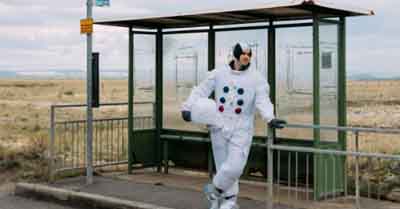Lesson 3. Verbs and Prepositions (Basic, A Level):
add, agree, explain, focus, hope, spend, thank, wait
Back to the list
/ˈæd/ add, add to
You add something to something else. That means you put something extra or something more into something else (usually to make it different, better, or more).
Examples: add to
- I like to add milk to my coffee.
- Let’s add more vegetables to the soup to make it nutritious.
- I’d like to go to the meeting. Can you add my name to the guest list?

Chevanon Photography | Pexels
/əˈgriː/ agree on, agree with, agree to do (something)
In general, you agree with someone or something on a topic.
If you and other people have the same idea or opinion, you agree with them.
If you and other people come to a decision or conclusion after a discussion or negotiation, you agree on the decision or conclusion. You have a consensus.
Examples: agree on
These examples mean people have come to a decision or conclusion. They have a consensus.
- We must agree on the time for the meeting.
- John and Mary can’t agree on a name for their new baby.
- Everyone finally agrees on the deadline for the project.

Thirdman | Pexels
Examples: agree with
These examples mean that people share or don’t share the same idea or opinion about something.
- She agrees with my decision to go to college.
- I don’t agree with my teacher when he says that learning pronunciation is not important.
- My parents want me to go to college. I agree with them, but I’m not ready to go.
Examples: agree to do something
- Everyone agrees to follow the new schedule.
- Do you agree to help me move this weekend?
- The teacher does not agree to postpone the test until next week.
/ɪkˈspleɪn/ • explain (something) to (someone)
To explain something means to tell someone about something in a way that helps them understand it better.
When you explain something, you can explain it to someone.
Examples: explain
- I cannot explain how this works.
- The teacher explains the lessons very well.
- Please, explain yourself. (Explain your actions or behavior.)
Examples: explain to (someone)
- Can you explain this math problem to me?
- Please, explain to me why this sentence is incorrect.
- A good teacher explains the lessons to all the students.

Max Fischer | Pexels
/ˈfoʊkəs/ • focus on
When you focus, you put all your attention on one thing without letting other things distract you.
When you focus on a lesson, all your thoughts and attention are on the lesson.
focus
- Turn off the music please. I need to focus.
- Stop playing with your smartphone. You need to focus.
- Let’s stop talking. I can’t focus.
Examples: focus on
- Turn off the music please. I need to focus on my homework.
- Stop playing with your smartphone. You need to focus on the lesson.
- Let’s stop talking. I can’t focus on my work.
/ˈhoʊp/ hope, hope for
When you hope, you want something good to happen in the future. You do not know what is going to happen, but you want it to be something good.
You can hope for something (usually something good).
You can hope that something happens.
You can hope that someone does something.
You can hope to do something in the future.
Examples: hope for (something)
- I hope for a good result.
- I hope for good weather on my birthday.
- He hopes for a good grade on his examination.
Examples: hope (to do)
- She hopes to learn a lot in her English class.
- We hope to travel to Paris one day.
- I hope to finish my homework before the game starts.
Examples: hope (that) someone does something
In the examples below, you can use or omit “that.”
- The students hope (that) there isn’t a lot of homework.
- We hope (that) the rain stops soon.
- I hope (that) my friends are there tomorrow.
/ˈspɛnd/ spend, spend on
When you spend time or money, you use it on something.
When you spend something doing something, you use it in that activity. For example, you can spend the weekend cleaning your room.
Examples: spend on
- Eric spends $400 a week on food.
- I need to spend a lot of time on a project this weekend.
- Don’t spend all your money on new clothes. You need money for other things.
Examples: spend (time) doing something
- I spend my evenings watching TV.
- We are going to spend the whole weekend studying for the exam.
- They will spend three days working on the project.
/ˈθæŋk/ thank for
When you thank someone, you express gratitude to someone for doing someone good for you.
You thank people for something.
You can thank people for doing something.
Examples: thank for
- Thank you for the beautiful flowers!
- I thank my mother for dinner every evening.
- I thank my mother for cooking delicious food.
- I can’t forget to thank Pedro for helping me with my homework.
/ˈwejt/ wait, wait for, wait on
When you wait, you stay in the same place until something happens or someone arrives.
You can wait for someone or something.
You can wait for someone to do something.
You can also wait for something to happen.
Examples: wait for
- She is waiting for the children.
She’s waiting for the children to go to bed.
- The child is waiting for his turn (to play the game).
- The astronaut is waiting for the bus (to arrive.)

T Leish | Pexels
Assess Your Learning
Practice 1. Fill in the blanks using the correct prepositions after the verbs in this lesson.
Practice 2. Complete sentences using the verbs and prepositions in this lesson.
Congratulations on completing this lesson!

Thanks to our supporters!
This material has been made possible by supporters like you. Learn how you can support us.

“What should I learn next?”
Use the navigation buttons to choose another skill or another lesson in this skill.
Thank you for Supporting Snap Language
Snap Language supporters make the creation of these materials possible.
Learn how you can support our work, get perks, and help us continue creating high-quality materials.
You can support us by simply white-listing this site.